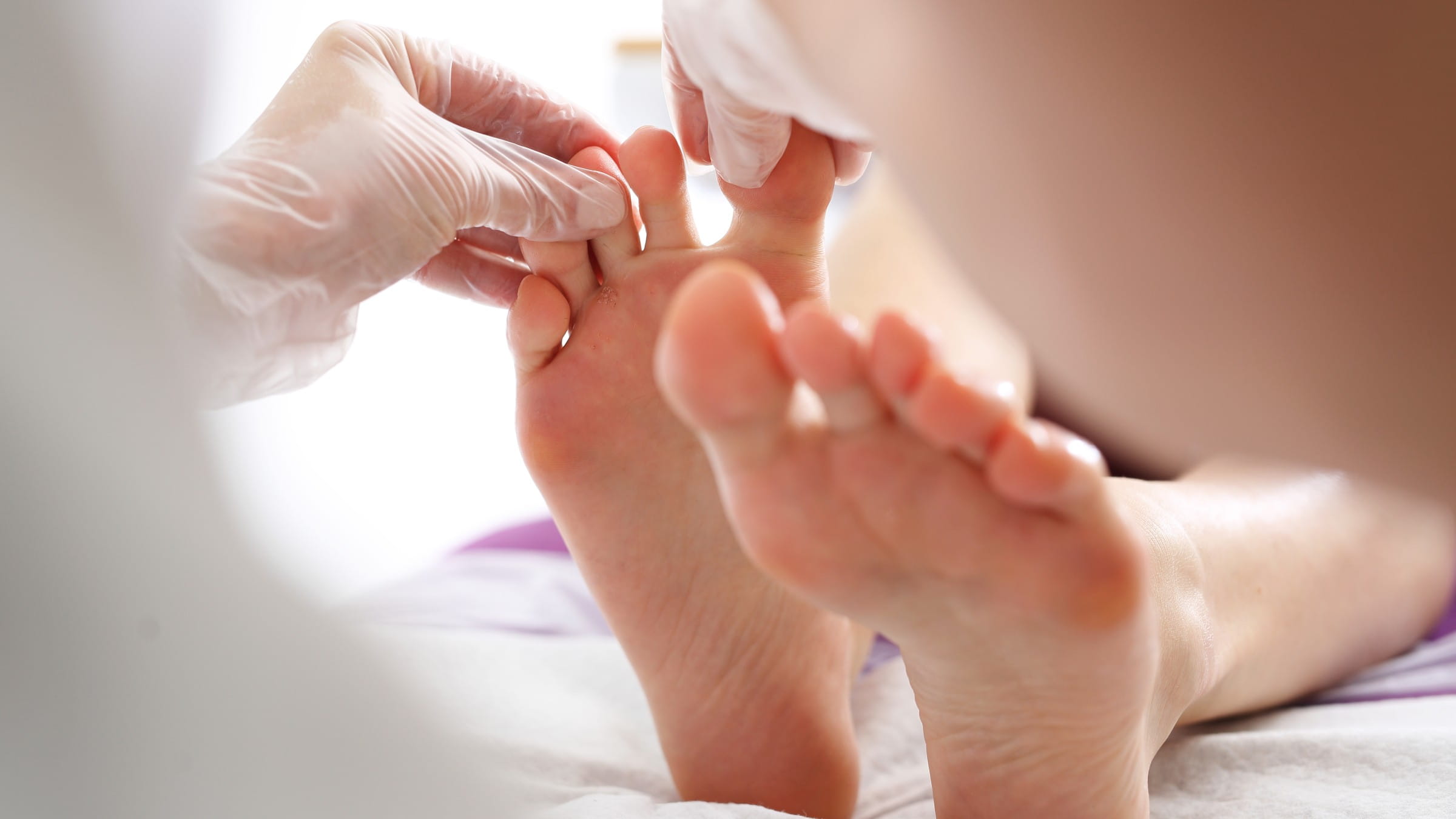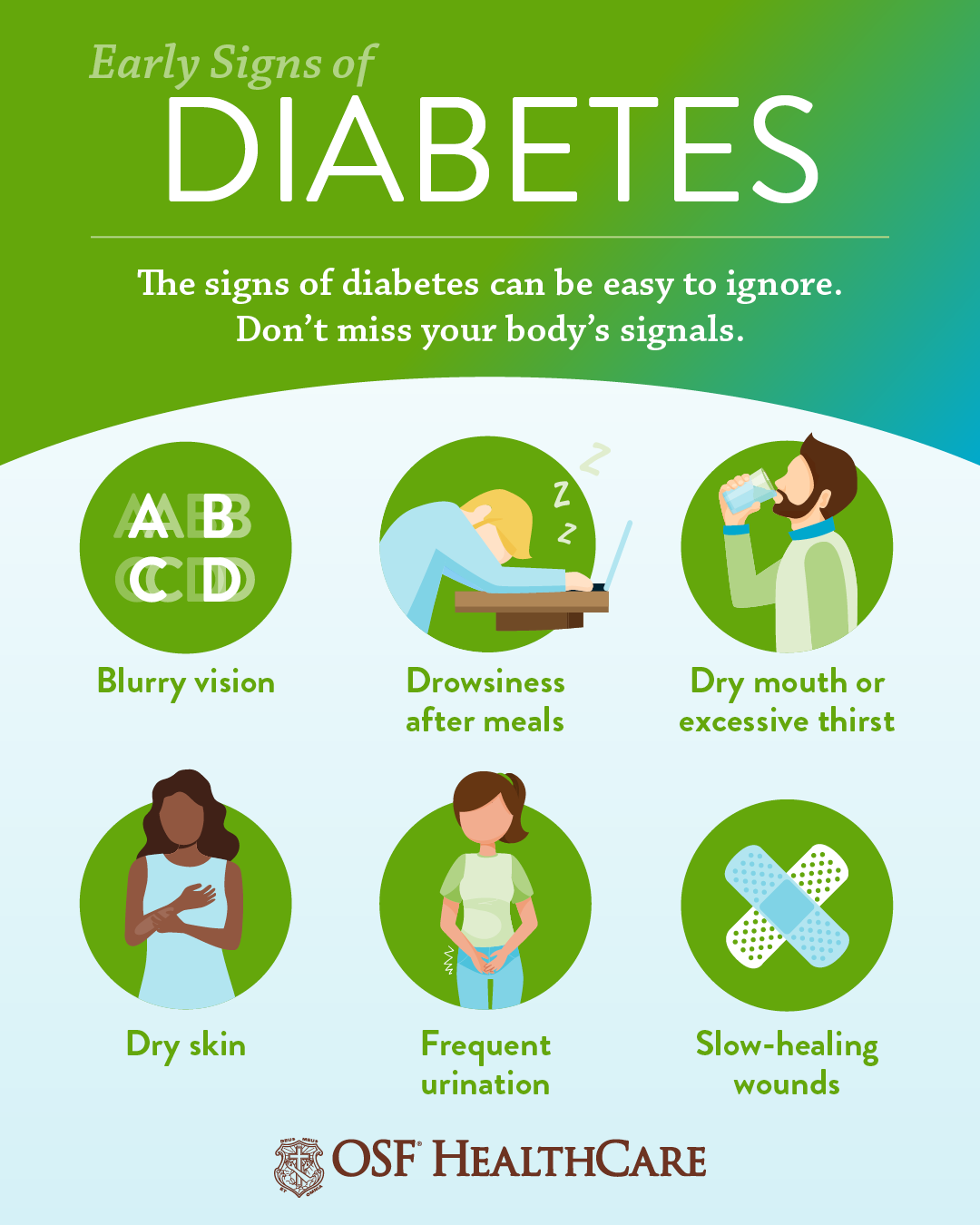Early signs and symptoms of diabetes can often go unnoticed, but it’s important to be aware of them for early detection and treatment. Some common early warning signs include frequent urination, excessive thirst, dry mouth, slow-healing wounds, blurry vision, unexplained weight loss, and extreme fatigue.
If you are experiencing any of these symptoms, it is recommended to consult with a healthcare professional for a blood sugar test. Ignoring these signs can lead to complications and worsen the condition. Stay vigilant and take proactive steps towards managing your health.
:max_bytes(150000):strip_icc()/interesting-multiple-sclerosis-facts-5205721-final-nologo-064fbb54318b405a8db07641127df011.jpg)
Credit: www.verywellhealth.com
Early Signs And Symptoms Of Diabetes
Diabetes is a chronic condition that affects millions of people worldwide. It is important to be aware of the early signs and symptoms of diabetes as early detection and management of the disease can significantly improve one’s quality of life. In this section, we will discuss seven early signs and symptoms of diabetes that are easy to miss. Let’s dive in!
Frequent Urination
One of the key indicators of diabetes is frequent urination. If you find yourself urinating more often than usual, especially at night, it could be a sign of high blood sugar levels. This occurs because the excess sugar in the blood leads to increased urine production. If you’re experiencing this symptom, it’s important to consult your doctor for a blood sugar test.
Dry Mouth And Excessive Thirst
Dry mouth and excessive thirst go hand in hand with frequent urination. When your body loses fluids through increased urination, it can leave your mouth feeling dry. As a result, you may find yourself constantly reaching for a glass of water or other beverages. If you notice these symptoms, it’s crucial to get tested for diabetes to ensure timely intervention.
Dry Skin
Diabetes can also affect your skin health. If you have dry, itchy skin that doesn’t seem to improve with moisturizers, it could be a sign of high blood sugar levels. Elevated blood sugar can cause dehydration, leading to dry skin. Paying attention to this symptom can help detect diabetes early and prevent potential complications.
Slow-healing Wounds
If you have noticed that your cuts, bruises, or wounds are taking longer than usual to heal, it might be an early sign of diabetes. High blood sugar levels can interfere with the body’s ability to heal, affecting the cells’ functions involved in the wound healing process. Don’t ignore this symptom; consult your healthcare provider for a proper evaluation.
Blurry Vision Or Eye Difficulties
Blurry vision or difficulties with your eyesight can indicate high blood sugar levels and potential diabetes. Elevated blood sugar can cause swelling in the lens of the eye, resulting in blurry vision. If you’re experiencing changes in your vision, it’s crucial to get your eyes checked by an eye healthcare professional, as early intervention can prevent further complications.
Losing Weight
Unintentional weight loss, despite eating more than usual, can be a warning sign of diabetes. When the body doesn’t produce enough insulin or is unable to effectively use it, it starts breaking down fat and muscle for energy, leading to weight loss. If you’re concerned about unexplained weight loss, it’s essential to consult your doctor for a thorough evaluation.
Cruciferous Vegetables
While not a symptom, adding cruciferous vegetables to your diet can help manage blood sugar levels and reduce the risk of developing diabetes. Vegetables like broccoli, cauliflower, and Brussels sprouts are rich in fiber, low in calories, and have a low glycemic index, making them ideal for maintaining stable blood sugar levels.
Protein
Protein plays an important role in managing blood sugar levels. Including protein-rich foods like lean meats, fish, eggs, and legumes in your diet can help stabilize blood sugar, prevent spikes, and promote satiety. It’s essential to prioritize protein consumption as part of a balanced diet, especially for individuals at risk of or living with diabetes.
:max_bytes(150000):strip_icc()/shutterstock_525525100-9d79c31f7f964998b4f4ffda2b5138dc.jpg)
Credit: www.parents.com
Common Symptoms Of Diabetes
Diabetes is a chronic condition that affects millions of individuals worldwide. It is characterized by high blood sugar levels due to the body’s inability to properly produce or use insulin. While there are different types of diabetes, the most common ones are type 1 and type 2. Recognizing the early signs and symptoms of diabetes is crucial for timely diagnosis and management of the condition.
Urinating Often
One of the common symptoms of diabetes is frequent urination. This occurs because the excess sugar in the blood pulls fluids from the body’s tissues, resulting in increased urine production. If you find yourself urinating more frequently than usual, especially during the night, it could be a sign of high blood sugar levels and potential diabetes.
Feeling Very Thirsty
Excessive thirst accompanies frequent urination in individuals with diabetes. The constant need to urinate leads to dehydration, triggering an intense feeling of thirst. If you find yourself feeling unusually thirsty, no matter how much water you drink, it may be worth considering the possibility of diabetes.
Feeling Very Hungry
Despite eating regular meals, individuals with diabetes may experience constant hunger. This happens because the body is unable to effectively convert glucose into energy without sufficient insulin. The result is a persistent feeling of hunger, even though you are consuming adequate amounts of food.
Extreme Fatigue
Feeling excessively tired and fatigued can also be a sign of diabetes. When there is a lack of insulin or the body is unable to use it properly, the cells are deprived of glucose, which is their main source of fuel. As a result, individuals with diabetes may feel constantly tired, regardless of the amount of rest they get.
Blurry Vision
Blurry vision is a common symptom of uncontrolled blood sugar levels. High blood sugar can cause fluid to be pulled from the lenses of the eyes, leading to changes in vision. If you notice sudden or persistent blurriness, it is important to consult a healthcare professional to rule out diabetes.
Cuts/bruises That Are Slow To Heal
In individuals with diabetes, wounds and cuts may take longer to heal. High blood sugar levels can affect blood circulation and damage blood vessels, impairing the body’s natural healing process. If you notice that your wounds are not healing as quickly as they should, it could be a sign of diabetes.
Weight Loss Even Though You Are Eating More
Unexplained weight loss can be another early sign of diabetes. When the body is unable to use insulin properly, it begins to break down muscle and fat for energy, resulting in unintended weight loss. If you are experiencing weight loss despite an increased appetite, it may be worth investigating further.
Recognizing the early signs and symptoms of diabetes is crucial for prompt diagnosis and treatment. If you are experiencing any of these symptoms, it is important to consult a healthcare professional for proper evaluation and guidance.
Mistaken Symptoms For Diabetes
Early detection and treatment of diabetes is crucial for managing the condition effectively. However, some symptoms of diabetes can be easily mistaken for other health issues. This can lead to delayed diagnosis and treatment, potentially causing complications. In this section, we’ll explore several conditions that share similar symptoms with diabetes, leading to mistaken diagnoses.
Enlarged Prostate
Enlarged prostate, also known as benign prostatic hyperplasia (BPH), is a common condition among older men. It can cause symptoms such as frequent urination, nocturia (waking up at night to urinate), and a weak urine stream. While these symptoms can also be seen in diabetes, it’s important to differentiate between the two. Consulting with a healthcare professional is essential to determine whether the symptoms are due to an enlarged prostate or diabetes.
Excessive Caffeine Intake
Caffeine is a stimulant found in coffee, tea, energy drinks, and chocolate. Consuming excessive amounts of caffeine can lead to symptoms such as increased urination, thirst, and fatigue. These symptoms can resemble those of diabetes. However, it’s essential to recognize that excessive caffeine intake can cause temporary changes, whereas diabetes is a chronic metabolic disorder. Reducing caffeine consumption and monitoring symptoms over time can help differentiate between the two.
Urinary Tract Infection (uti)
A urinary tract infection (UTI) occurs when bacteria enter the urinary system, leading to symptoms such as frequent urination, burning sensation during urination, and cloudy urine. These symptoms may also be present in diabetes. However, the underlying causes of these symptoms are different. Consulting with a healthcare professional can help determine the root cause and provide appropriate treatment.
Urethra Swelling Or Infection (urethritis)
Urethritis refers to the inflammation or infection of the urethra, the tube that carries urine from the bladder to the outside of the body. Symptoms of urethritis can include burning or pain during urination, frequent urination, and discharge from the urethra. These symptoms can sometimes be mistaken for diabetes. A healthcare professional can conduct tests to accurately diagnose the condition and provide appropriate treatment.
Vaginitis (vaginal Inflammation Or Infection)
Vaginitis refers to the inflammation or infection of the vagina, which can cause symptoms such as vaginal itching, burning sensation, abnormal discharge, and frequent urination. These symptoms may overlap with certain symptoms of diabetes. Seeking medical advice can help differentiate between vaginitis and diabetes, and ensure proper treatment is given.
Obstructive Sleep Apnea
Obstructive sleep apnea is a sleep disorder characterized by interruptions in breathing during sleep. Symptoms can include loud snoring, excessive daytime sleepiness, morning headaches, and frequent nighttime urination. Some of these symptoms are also seen in diabetes. Consulting with a healthcare professional can help determine the underlying cause of these symptoms and guide proper treatment.
Interstitial Cystitis (painful Bladder Syndrome)
Interstitial cystitis, also known as painful bladder syndrome, is a chronic condition characterized by bladder pain, frequent urination, and a persistent urge to urinate. These symptoms may be mistaken for diabetes due to the overlap in frequent urination. However, the underlying causes of these symptoms differ. Seeking medical advice is crucial to accurately diagnose and manage the condition.

Credit: health.osu.edu
Frequently Asked Questions For 7 Early Signs And Symptoms Of Diabetes That Are Easy To Miss
What Are The 3 Most Common Symptoms Of Undiagnosed Diabetes?
The three most common symptoms of undiagnosed diabetes are frequent urination, excessive thirst, and persistent hunger.
What Are The Early Warning Symptoms You Should Never Ignore With Diabetes?
Early warning symptoms of diabetes that you should never ignore include frequent urination, excessive thirst, dry mouth, slow-healing wounds, blurry vision, and unexplained weight loss. If you experience any of these symptoms, it is important to consult with your doctor for a blood sugar test.
What Are The 3 Early Signs Of Diabetes?
The 3 early signs of diabetes are frequent urination, excessive thirst, and increased hunger.
What Can Be Mistaken For Diabetes?
Common conditions that can be mistaken for diabetes include enlarged prostate, excessive caffeine intake, urinary tract infection, urethra swelling or infection, vaginitis, obstructive sleep apnea, and interstitial cystitis.
Conclusion
It is crucial to be aware of the early signs and symptoms of diabetes that are often easy to miss. Frequent urination, dry mouth and excessive thirst, dry skin, slow-healing wounds, blurry vision, and unexplained weight loss are all important indicators to look out for.
If you experience any of these symptoms, it is essential to consult your doctor and get your blood sugar levels tested. Don’t ignore these warning signs and take care of your health.
